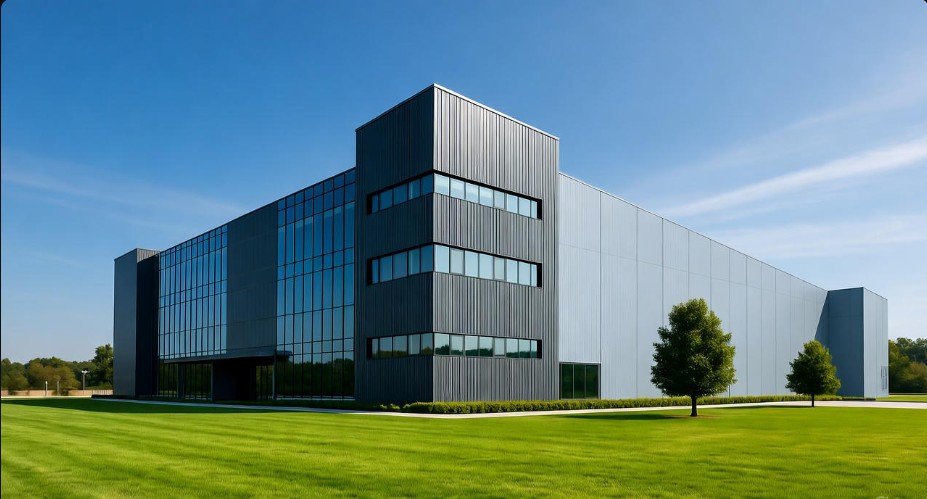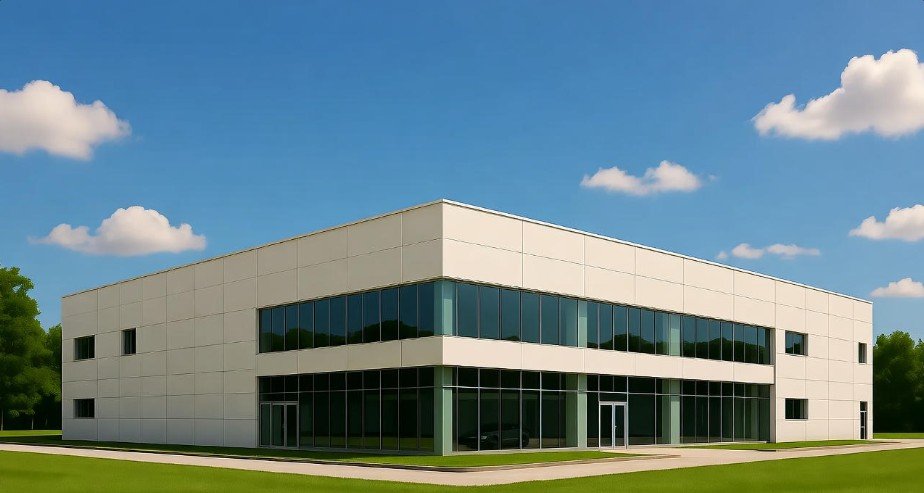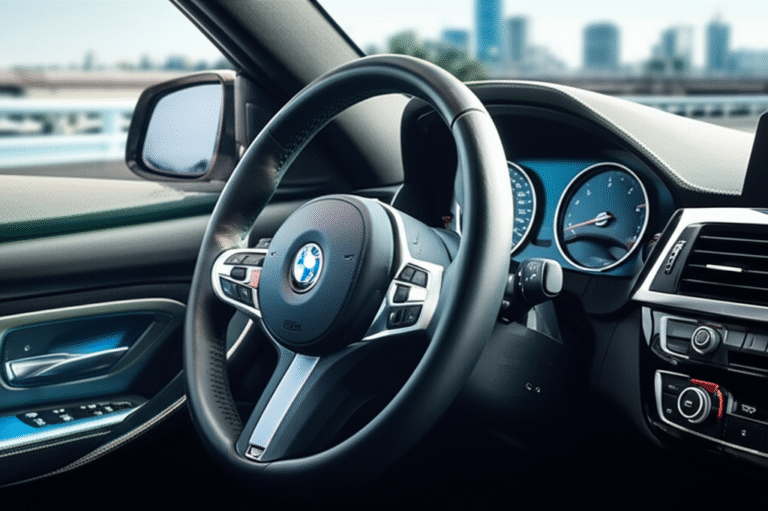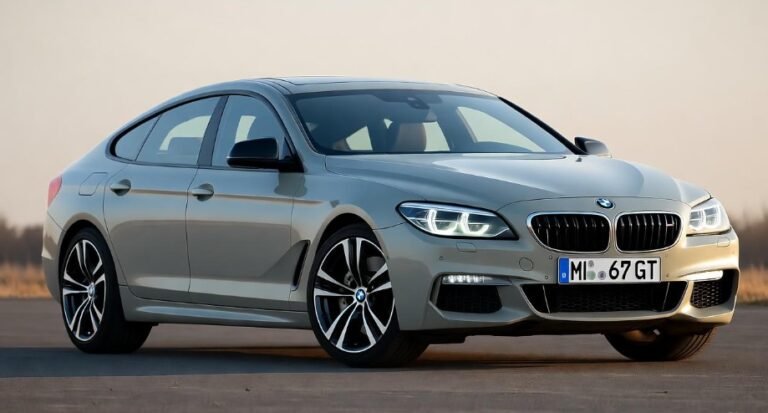BMW Manufacturing Plant Chennai: 5 Key Facts

The BMW Manufacturing Plant in Chennai is a cornerstone of automotive production in India, symbolizing luxury and innovation. Discover 5 key facts about this vital facility that drives BMW’s presence in the region.
Key Takeaways
- Establishes BMW’s significant Indian automotive presence.
- Focuses on localized production and customization.
- Employs advanced manufacturing and quality control.
- Contributes to the local economy and job creation.
- Assembles a diverse range of BMW models.
Thinking about the intricate process behind your favorite luxury car? It’s easy to wonder where and how these marvels of engineering are brought to life. Many assume all cars are built in Germany, but that’s not always the case, especially for global brands like BMW. The BMW manufacturing plant in Chennai, India, plays a crucial role in this global network. You might be curious about what makes this facility special and how it contributes to the vehicles you see on the road. We’re here to break down the complexities and offer you a clear, easy-to-understand look at this important automotive hub. Let’s explore 5 key facts about the BMW Manufacturing Plant Chennai that will surely impress any car enthusiast.
Unveiling the BMW Manufacturing Plant Chennai: 5 Key Facts You Must Know

The automotive landscape in India is vibrant and rapidly evolving, with global giants establishing strong footholds. Among them, BMW’s presence is marked by its sophisticated manufacturing plant located in Chennai, Tamil Nadu. This facility isn’t just an assembly line; it’s a testament to BMW’s commitment to the Indian market, blending global standards with local adaptation. Understanding this plant offers a fascinating glimpse into modern automotive production and the strategic decisions that drive global brands.
1. Strategic Location and Early Establishment
The choice of Chennai for BMW’s manufacturing operations was a deliberate strategic move, leveraging the region’s robust industrial ecosystem and skilled workforce. Established on March 29, 2006, the BMW Plant Chennai marked the German automaker’s significant investment in the burgeoning Indian automotive sector. The location in Mahindra World City, a well-planned industrial park, provided access to essential infrastructure, including logistics, power, and water supply, crucial for large-scale manufacturing. This early establishment allowed BMW to gain a substantial head start in understanding and serving the unique demands of the Indian consumer. The plant’s proximity to the port of Chennai also facilitates the import of essential components and the export of finished vehicles or components, further enhancing its logistical efficiency.
Chennai, often referred to as the “Detroit of Asia,” boasts a rich history in automotive manufacturing, making it an ideal hub for global players. The presence of numerous auto component suppliers and a technically proficient labor pool were key factors that attracted BMW. This strategic positioning has allowed BMW to integrate seamlessly into the local supply chain, optimizing production processes and reducing lead times. The plant’s operational setup is designed to be nimble, capable of adapting to market demands and introducing new models efficiently.
2. Localized Production and Customization for the Indian Market
One of the most significant aspects of the BMW Manufacturing Plant Chennai is its focus on localized production, often referred to as ‘assembly’ rather than full-scale manufacturing of individual parts. This approach allows BMW to tailor its premium vehicles to the specific preferences and regulatory requirements of the Indian market. Instead of importing fully built cars, BMW imports components and assembles them locally. This strategy offers several advantages, including potential cost savings through reduced import duties on completely knocked-down (CKD) or semi-knocked-down (SKD) kits compared to fully built units (FBUs). This also allows for quicker adaptation to local tastes, such as specific interior trims or suspension setups that might better suit Indian road conditions.
The Chennai plant is equipped to assemble a wide array of BMW models, catering to diverse segments of the luxury car market in India. From sedans like the 3 Series and 5 Series to SUVs from the X-line (X1, X3, X5), and even the premium 6 Series Gran Turismo and 7 Series, the plant has the flexibility to switch between different models. This versatility is a hallmark of modern automotive plants, enabling them to respond effectively to market trends and consumer demand. The customization doesn’t stop at model selection; it extends to the detailed specifications of each vehicle, ensuring that the final product meets the high standards and expectations associated with the BMW brand, while also reflecting local preferences.
3. Advanced Manufacturing Technologies and Quality Control
The BMW Plant Chennai operates with the same stringent quality standards and advanced manufacturing technologies that are characteristic of BMW facilities worldwide. While it’s primarily an assembly operation for CKD/SKD kits, the precision and sophistication involved are world-class. The plant employs sophisticated assembly processes, ensuring that each vehicle is built to BMW’s exacting global benchmarks for performance, safety, and luxury. This includes state-of-the-art tools, automated systems, and rigorous quality checks at every stage of the assembly line.
Quality control is paramount. Every vehicle undergoes thorough inspections, from the initial fitment of components to the final finishing touches. This meticulous process ensures that vehicles leaving the Chennai plant are indistinguishable in quality from those produced in BMW’s global manufacturing centers. The plant utilizes advanced diagnostic equipment to test the performance of various systems, ensuring that everything from the engine and transmission to the infotainment and safety features functions flawlessly. This unwavering commitment to quality is what allows BMW to maintain its reputation for building superior luxury vehicles, even when assembled in a different country.
Pro Tip: Always ensure that the vehicle’s maintenance history is readily available, especially if you’re considering a pre-owned model that may have originated from a plant like BMW Chennai.
4. Economic Contribution and Employment Generation
The presence of the BMW Manufacturing Plant Chennai has had a significant positive impact on the regional and national economy. Beyond the direct employment opportunities it creates within the plant, it stimulates job growth in ancillary industries, including logistics, IT services, component supply, and the broader automotive ecosystem surrounding Chennai. The plant’s operations require a skilled workforce, from assembly line technicians and engineers to administrative and management staff, contributing to the development of specialized talent in the automotive sector.
BMW’s investment in India also extends to training and skill development. The company often partners with local educational institutions and vocational training centers to cultivate the expertise needed for advanced automotive manufacturing. This not only benefits the plant by providing a steady stream of qualified personnel but also enhances the employability of individuals in the region. Furthermore, the economic multiplier effect of such a large-scale industrial operation means that local businesses, suppliers, and service providers experience increased demand, fostering overall economic growth and prosperity in Tamil Nadu. According to official BMW Group reports, the company consistently invests in its global production network, and the Chennai plant is a key part of that strategy, supporting local economies wherever it operates.
5. Diverse Model Assembly and Future Potential
The BMW Plant Chennai has evolved to assemble a comprehensive range of BMW’s most popular models in India, demonstrating its versatility and importance in the brand’s global production strategy. Initially focusing on a few select models, the plant has progressively expanded its scope. Today, it assembles a wide spectrum of the brand’s offerings, including:
| Vehicle Series | Body Styles | Examples |
|---|---|---|
| BMW 3 Series | Sedan | 330i, 320d |
| BMW 5 Series | Sedan | 530i, 520d |
| BMW 7 Series | Sedan | 740Li |
| BMW X1 | SUV | X1 sDrive20i, X1 sDrive20d |
| BMW X3 | SUV | X3 xDrive30i, X3 xDrive20d |
| BMW X4 | SUV Coupe | X4 xDrive30i |
| BMW X5 | SUV | X5 xDrive40i, X5 xDrive30d |
| BMW 6 Series Gran Turismo | Liftback | 630i GT, 620d GT |
This extensive lineup reflects BMW’s strategy to capture a significant share of the Indian luxury automotive market across various segments. The ability to assemble such a diverse range of vehicles efficiently underscores the plant’s sophisticated operational capabilities and its integral role in BMW’s global production architecture. Looking ahead, the plant’s potential for expansion and the introduction of new models, possibly including electrified vehicles or newer generations of existing series, remains high, contingent on market demand and BMW’s evolving global strategy. The continuous investment in local manufacturing capabilities signals BMW’s long-term commitment to India as a key growth market.
The Significance of Localized Assembly for Luxury Brands
The implementation of localized assembly operations, like that of the BMW Manufacturing Plant Chennai, is a critical strategy for luxury automotive brands aiming for significant market penetration and sustained growth in diverse economies. This approach allows manufacturers to balance premium quality with market-specific economic realities. For consumers, it often translates into a wider availability of models and potentially more competitive pricing due to favorable tax structures on component imports compared to fully built vehicles. In India, this has been a key factor in making premium vehicles more accessible to a growing affluent population.
Furthermore, localized assembly fosters a deeper understanding and integration with the local market. It allows for quicker responses to customer feedback and market trends, enabling brands to offer vehicles that are not just globally recognized but also locally relevant. The skills developed within the local workforce and the relationships built with local suppliers contribute to the overall health and dynamism of the automotive industry in the region. Companies like BMW leverage these benefits to strengthen their brand presence and build lasting relationships with their customer base. The success of the Chennai plant serves as a prime example of how global automotive giants can effectively operate and thrive in rapidly developing markets, ensuring customer satisfaction and brand loyalty.
Frequently Asked Questions (FAQs)
What types of BMW vehicles are assembled at the Chennai plant?
The BMW Plant Chennai assembles a wide range of models, including sedans like the 3 Series, 5 Series, and 7 Series, as well as SUVs such as the X1, X3, X4, and X5. The 6 Series Gran Turismo is also assembled there. The specific models and variants available can change based on market demand and BMW’s global production strategy.
Is the BMW plant in Chennai a full manufacturing facility?
The Chennai plant primarily operates as an assembly facility for Completely Knocked-Down (CKD) and Semi-Knocked-Down (SKD) kits imported from BMW’s global production network. While it doesn’t manufacture all components from raw materials locally, it performs sophisticated assembly and quality checks to meet BMW’s global standards.
What are the benefits of BMW assembling cars in Chennai for Indian consumers?
Assembling cars in Chennai offers several benefits to Indian consumers. It can lead to more competitive pricing due to different tax structures on imported components versus fully built cars. It also allows for greater customization to suit local preferences and road conditions, and potentially quicker availability of certain models and spare parts.
Does the Chennai plant contribute to the local economy?
Yes, the BMW Plant Chennai makes a significant contribution to the local economy. It creates direct employment opportunities within the plant and indirect jobs in supplier industries, logistics, and services. BMW also often engages in skill development programs for the local workforce.
What are the quality standards at the BMW Chennai plant?
The BMW Plant Chennai adheres to BMW’s rigorous global quality standards. The assembly processes, tools, and quality control measures are designed to ensure that every vehicle assembled at the plant meets the high benchmarks for performance, safety, and luxury that are synonymous with the BMW brand worldwide.
How does the Chennai plant fit into BMW’s global production network?
The Chennai plant is a vital part of BMW’s global production network, enabling the company to effectively serve the strategically important Indian market. It allows BMW to optimize its supply chain, adapt vehicles to local needs, and maintain a strong presence in one of the world’s fastest-growing automotive markets.
Are electric BMW vehicles assembled at the Chennai plant?
As of recent information, the Chennai plant primarily focuses on assembling internal combustion engine and plug-in hybrid models. However, as BMW globally expands its electrification strategy, the potential for local assembly of electric BMW vehicles in India, including at the Chennai plant, remains a possibility for the future, dependent on market conditions and BMW’s investment plans.
Conclusion
The BMW Manufacturing Plant in Chennai stands as a powerful symbol of globalization and localization in the automotive industry. It’s more than just an assembly line; it’s a hub of precision engineering, quality control, and economic contribution. By understanding these 5 key facts, you gain a deeper appreciation for the intricate processes that bring luxury vehicles to your driveway, whether they are built in Germany or skillfully assembled in India. The plant’s strategic location, focus on customization, adoption of advanced technologies, significant economic impact, and the diverse range of vehicles it produces all highlight BMW’s deep commitment to the Indian market and its role in shaping the future of luxury mobility in the region.




